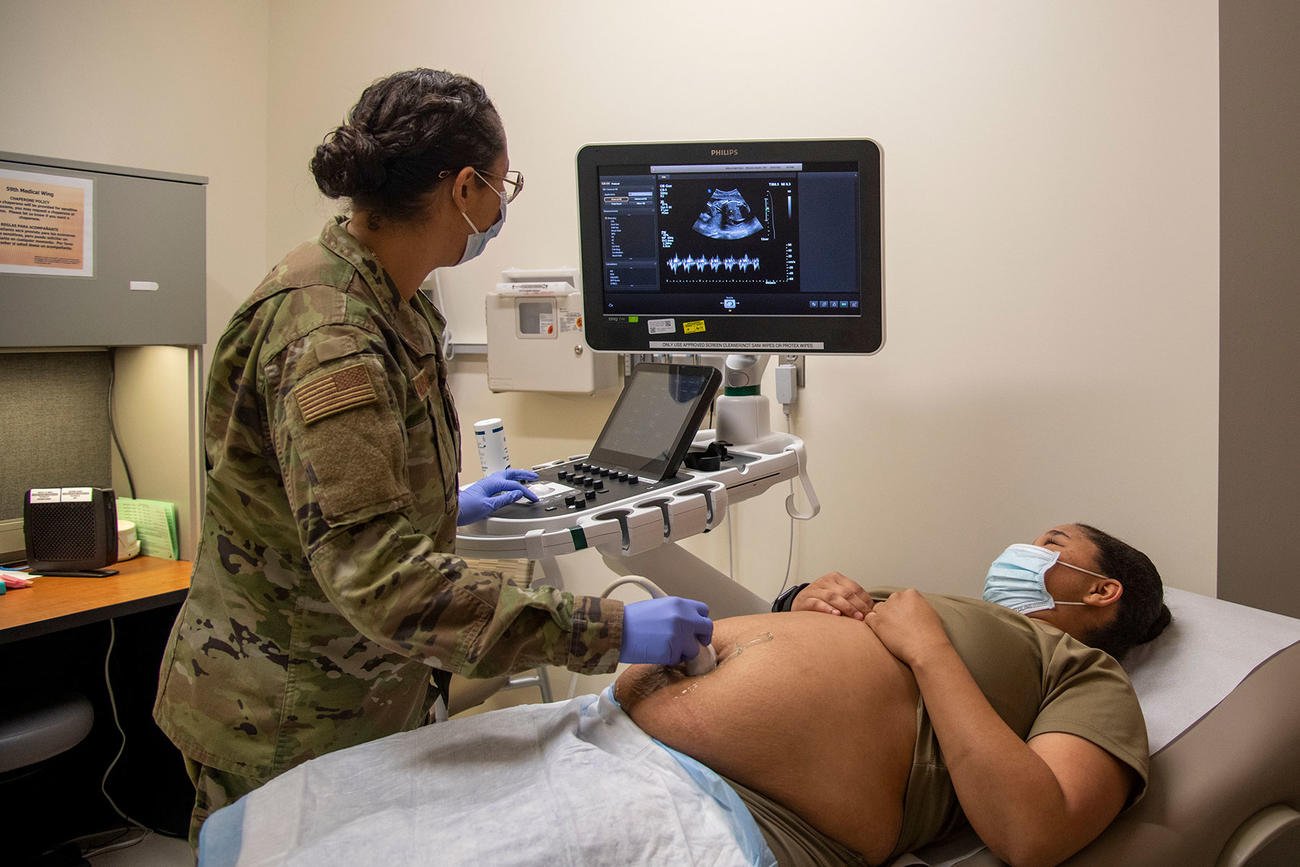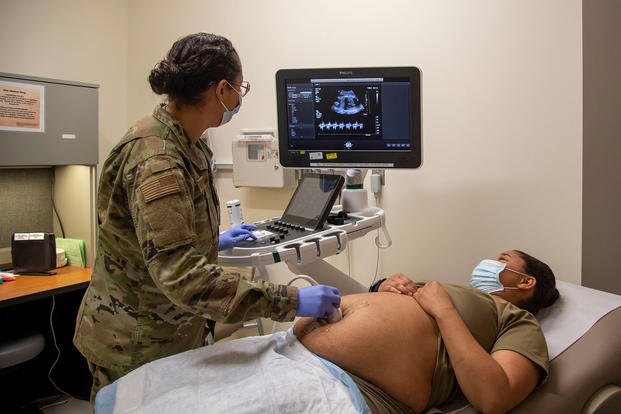

In an effort to improve prenatal care for troops and family members, a group of lawmakers wants to give Tricare users more flexibility to change their health-care plans when they get pregnant.
The House’s version of the must-pass annual defense policy bill already includes language that would add, on a trial basis, pregnancy to the list of reasons why Tricare users could change plans. Now, a group of lawmakers is introducing separate legislation on the issue, with the goal of convincing negotiators on the defense bill to keep the House language in the compromise version.
“Sometimes when you are young and indestructible, you choose a more bare-bones plan,” Sen. Tammy Duckworth, D-Ill., said in an interview with Military.com about the bill. “But it would be much more helpful if you can get more coverage once you become pregnant. And I think this is just really common sense, so that people can actually do the responsible thing and purchase the higher level of insurance that they might need.”
Read Next: Military Suicides Rose in 2023, Continuing Upward Trend Pentagon Sees as ‘Real Change’
As with most health insurance plans, Tricare only allows beneficiaries to change coverage during open enrollment season or if they have a qualifying life event, such as moving, getting married or having a baby.
Pregnancy is not considered a qualifying life event for Tricare enrollment. That’s also in line with most private health plans, though some states require that insurers consider pregnancy a qualifying life event.
While Tricare’s policies aren’t outside the norm, lawmakers argued that military life, with its inherent dangers and other stressors such as frequent moves, means Tricare should offer more options than private plans.
“We’ve heard complaints about the inflexibility,” Rep. Terri Sewell, D-Ala., said in an interview. “Offering that kind of flexibility would also ease the burden on military dependents experiencing these transitional periods that are pretty frightening, especially if you’re a first-time mom. So I think we’re just trying to make sure that we’re addressing the needs of the whole family, military families and being very cognizant of an opportunity to really take care of mom and baby on the front end.”
The House version of this year’s National Defense Authorization Act, or NDAA, includes a provision that would create a five-year pilot program for pregnancy to be considered a qualifying event for enrollment in Tricare Select.
The nonbinding report accompanying the Senate version of the NDAA calls for the Pentagon to provide lawmakers with a briefing on the issue. But the bill itself wouldn’t mandate any change in Tricare policies surrounding pregnancy.
Leaders on the House and Senate Armed Services committees are negotiating now on a compromise version of the NDAA that is expected to become law before the end of the year. In hopes of sending a message to negotiators that there’s strong support for the pregnancy provision to be included in the final bill, Duckworth, Sewell and Rep. Andy Kim, D-N.J., are introducing a standalone bill that mirrors the language in the House NDAA.
“For their dedicated service and sacrifices on behalf of our nation, military families deserve health care options that can meet their evolving needs,” Kim, who was recently elected to serve in the Senate next year, said in a statement. “As they continue to be there for us, this designation would help look after them in a time when having the maternal care they need couldn’t be more important.”
The bill also has the support of groups such as the Military Officers Association of America, the National Military Family Association, the Jewish War Veterans of the United States of America, and Iraq and Afghanistan Veterans of America, according to Duckworth’s office.
The standalone bill, Duckworth said, also serves as a backup plan if the language doesn’t make it into the final NDAA that becomes law this year. If that happens, she and Sewell both said they plan to reintroduce the bill next year and continue pushing the issue.
“It’s pretty common sense that we would do this,” Duckworth said, “and that military families shouldn’t face needless barriers just to access prenatal care.”
